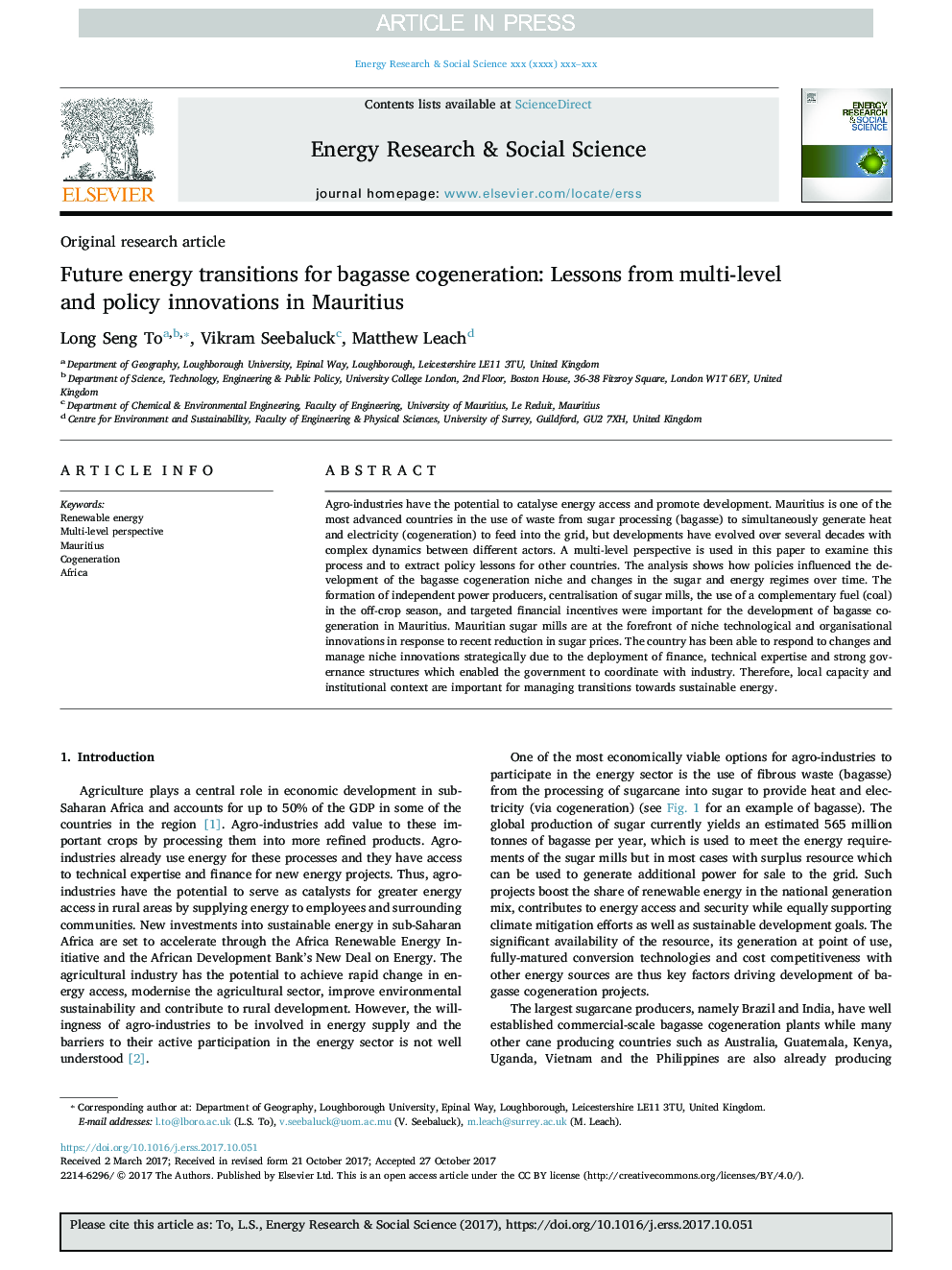| Article ID | Journal | Published Year | Pages | File Type |
|---|---|---|---|---|
| 6557757 | Energy Research & Social Science | 2018 | 10 Pages |
Abstract
Agro-industries have the potential to catalyse energy access and promote development. Mauritius is one of the most advanced countries in the use of waste from sugar processing (bagasse) to simultaneously generate heat and electricity (cogeneration) to feed into the grid, but developments have evolved over several decades with complex dynamics between different actors. A multi-level perspective is used in this paper to examine this process and to extract policy lessons for other countries. The analysis shows how policies influenced the development of the bagasse cogeneration niche and changes in the sugar and energy regimes over time. The formation of independent power producers, centralisation of sugar mills, the use of a complementary fuel (coal) in the off-crop season, and targeted financial incentives were important for the development of bagasse cogeneration in Mauritius. Mauritian sugar mills are at the forefront of niche technological and organisational innovations in response to recent reduction in sugar prices. The country has been able to respond to changes and manage niche innovations strategically due to the deployment of finance, technical expertise and strong governance structures which enabled the government to coordinate with industry. Therefore, local capacity and institutional context are important for managing transitions towards sustainable energy.
Related Topics
Physical Sciences and Engineering
Energy
Energy (General)
Authors
Long Seng To, Vikram Seebaluck, Matthew Leach,
